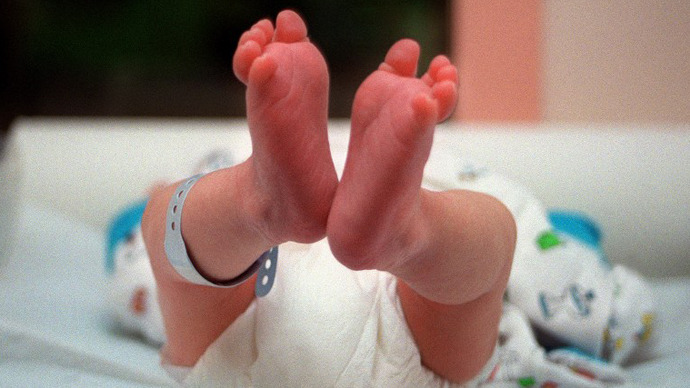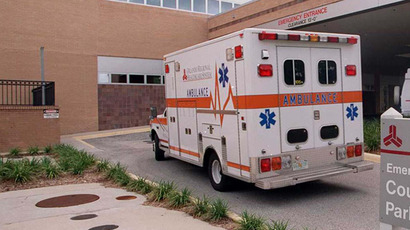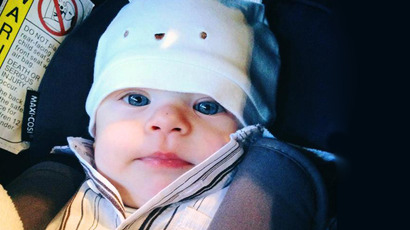US hospitals grapple with growing number of drug dependent newborns

Tennessee, the first US state to track the number of infants born addicted to prescription drugs, has reported a surge in their numbers that has medical professionals concerned.
Known medically as “neonatal
abstinence syndrome,” babies born with a drug dependency
will require small does of an opiate, such as morphine, until they
can be weaned off and their withdrawal symptoms are brought under
control.
According to an Associated Press report, staff at the East
Tennessee Children’s Hospital in Knoxville expect to treat 320
children this year for drug dependence, up from 283 the year prior
and 33 in 2008.
Though the US does not officially track the number of infants born
with a drug dependency, a study published in the Journal of the
American Medical Association cites over 13,000 infants were born
with the affliction across the country in 2009.
Withdrawal symptoms for adult drug addicts appear to be similar to
those experienced by infants. Babies born with a dependency can
suffer from nausea, vomiting, severe stomach cramps and diarrhea.
The newborns may also experience issues eating and sleeping, and
can even suffer from seizures.
Shockingly, the AP reports that at East Tennessee Children’s
Hospital about half of its neonatal unit’s 49 newborns are being
treated for drug addiction. The agitation caused by withdrawal have
led medical staff to place mittens on the infants’ hands to prevent
them from scratching and rubbing their own faces.
A similar report by the Wall Street Journal in 2012, which focused
on Florida hospitals, describes medical professionals slowly coming
to grips with an increase in drug dependent newborns.
“The problem that we started
having with babies withdrawing from drugs that moms are taking
during pregnancy happened very gradually. We’d see a baby a week,
then two, then three, then four - to the point that we found 10 per
cent of the babies that we had at the hospital were there because
they were withdrawing from mom’s drug use,” said Terri
Ashmeade, NICU Medical Director for Tampa General Hospital.
The same WSJ report cites that between 2000 and 2009 the number of
infants in the US demonstrating symptoms of withdrawal from
opioids, including prescription painkillers, has tripled.
At East Tennessee babies experiencing withdrawal are often placed
in private, dark rooms with either rocking machines to try and keep
them calm, or frequent visits by one of the hospital’s 57
“cuddlers” - volunteers
that supplement regular staff by holding babies, and rocking them
to try and ease their symptoms.
It is impossible to be unmoved by these infants, said Carla
Saunders, the hospital’s neonatal nurse practitioner who spoke with
the AP.
"If there is anything that could
drive the people in our society to stop turning their heads to
adult addiction, it's going to be the babies," says
Saunders.
Drug abuse in the state of Tennessee is often ranked among the
highest in the US, though as additional reporting already confirms
the number of newborns with prescription drug dependencies is
hardly confined to that state.
At Florida's Tampa General Hospital, Ashmeade tells the WSJ video
reporters of the impact that these babies have made on her
staff.
“The nurses have a hard time.
These babies require a lot of care, and sometimes, despite our best
efforts, there is still a period of time before we can get them
comfortable,” says Ashmeade.














